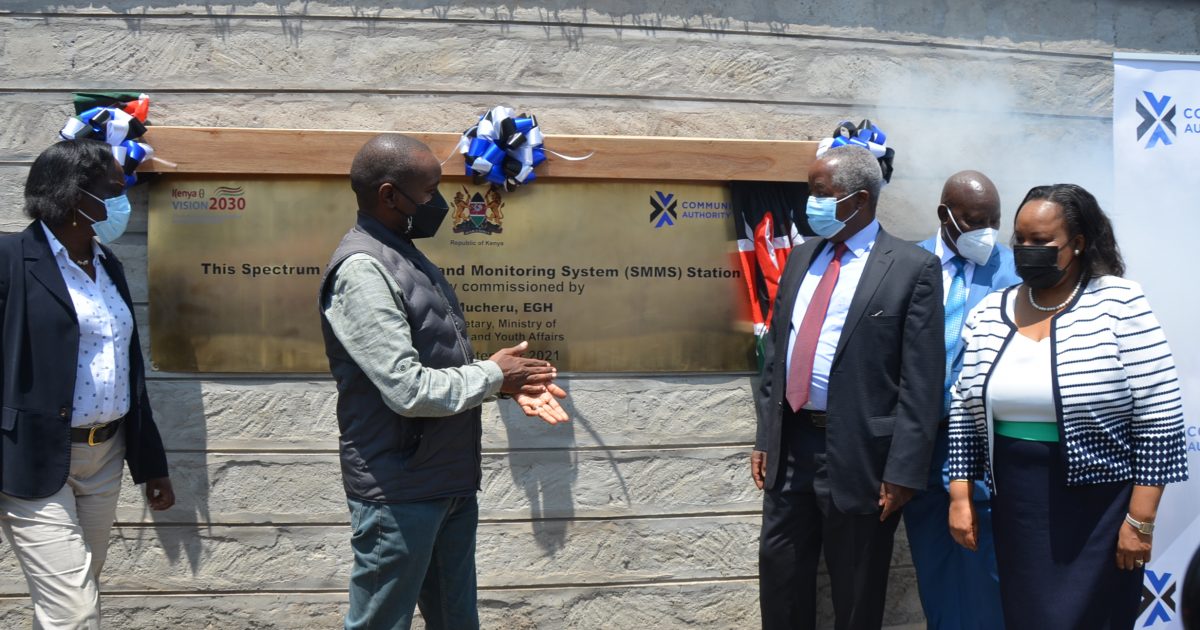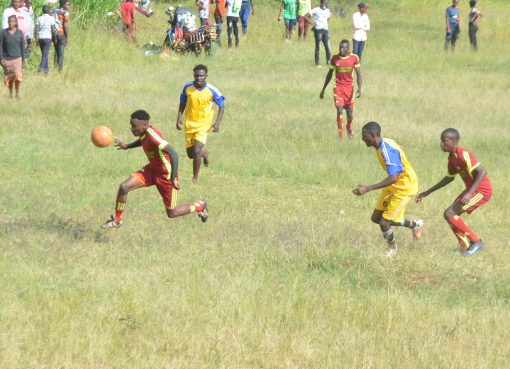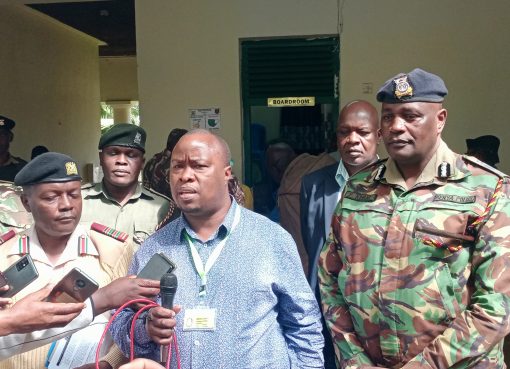ICT Cabinet Secretary CS Joe Mucheru launched the 12th Spectrum Management and Monitoring System (SMMS II) that will serve the central region and designed to eliminate radio frequencies interference among other functions.
The facility erected at Wambugu Farm, some few kilometers from Nyeri town by the Communications Authority of Kenya will also be used to detect unauthorized radio frequency transmissions and ensure uninterrupted reception of radio services.
Speaking during the launch, Mr Mucheru said that the system will monitor and manage frequencies within the Central, Eastern and Northern regions of the country.
“The main purpose of this system is to help us know who is using these frequencies and what they are using them for. As you know, this is a very scarce and very important resource which is used by broadcasters for radio, television and mobile phone operators to make sure that we are able to communicate,” Mucheru said.
Similar systems have been installed in Eldoret, Garissa, Nairobi, Nakuru, Kisumu, Kilifi, Kitale and Mombasa counties among others.
The CAK Board Chairman Kembi Gitura said that the fully automated system will go a long way in reducing the cost of doing business for existing customers and prospective licensees as well as foster collaborations between CAK and other government agencies.
He noted the expansion of spectrum based technologies had led to increased uptake of ICT services in the country since 2019 when the project was launched.
“The latest ICT sector report by CAK shows that as at March 2021, the number of active mobile subscriptions stood at 62 million, whereas the number of active mobile money subscriptions stood at 33.1 million. During the same period, the total number of Internet subscriptions stood at 43.7 million,” said Gitura.
Gitura said that CAK was embarking on the second phase of connecting over 100 sub-locations in the country with voice and data services through the Universal Service Fund adding that the authority has so far connected 886 public secondary schools and 75 sub-locations with mobile voice and internet.
“Through the USF, the authority has prioritized the deployment of communications infrastructure and services in areas that until recently had never tasted the transformative power of ICTs. With this second phase, we anticipate to avail voice and data services to an estimated 269,842 people,” he said.
CAK’s acting Director General Mercy Wanjau said that the system will improve service delivery and increase the response time when dealing with illegal connections. Wanjau said that the authority had received 45 frequency interference cases and had managed to resolve 35.
By Esther Mwangi





